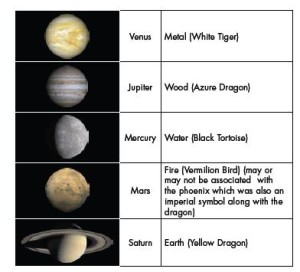Bazi Analysis
Interested to learn Bazi and Feng Shui to help yourself and your family have better success, relationship and abundance in life? Click on the following link to find out more about our courses: https://courses.happyandsuccess.com/
Four Pillars of Destiny, Is It a Science?
Most, if not all personality profiling systems and tests (developed mainly in the Western world) serve to understand human behaviour, traits, preferences. They can be utilized for clinical counseling, organizational recruitment or career development; or are just simply another tool for us to better understand ourselves, our abilities, capabilities or preferences.
 Interestingly enough, these concepts were explored more than 2,000 years ago within the Chinese metaphysical system. The development of this type of ancient Chinese metaphysical study, Chinese astrology (which includes Bazi or Four Pillars) is tied to that of astronomy. This started during the Zhou dynasty (1046 to 256 BCE) and came to flourish during the Han Dynasty (2nd century BCE to 2nd century AD). Since then, studies, research and reviews have been consistently recorded and updated over the last two millennium.
Interestingly enough, these concepts were explored more than 2,000 years ago within the Chinese metaphysical system. The development of this type of ancient Chinese metaphysical study, Chinese astrology (which includes Bazi or Four Pillars) is tied to that of astronomy. This started during the Zhou dynasty (1046 to 256 BCE) and came to flourish during the Han Dynasty (2nd century BCE to 2nd century AD). Since then, studies, research and reviews have been consistently recorded and updated over the last two millennium.
Bazi is a metaphysical science.
Most of us view “science” as the study of and knowledge about the physical and natural laws where it is a body of reliable knowledge itself. In modern times, science has to do with knowledge that can be logically and rationally explained.
Thus, as most people do not understand how Feng Shui or Bazi are derived or what they are based on , they assume that they cannot be logically and rationally explained, thus they feel they are more hocus pocus or of superstitious origin.
What does Metaphysics mean?
However, further research on the topic of science reveals that it is a term which means “knowledge” of, originating from epistemology. Science existed before the modern era.
Science in its original sense is a word for a type of knowledge (Latin scientia). In particular it is one of the type of knowledge which people can communicate to each other and share with.
For example, knowledge about the working of natural things was observed and gathered long before recorded history and led to the development of complex abstract thinking, as shown by:
- Construction of complex calendars
- Predictions of weather and buildings such as the Great Pyramids.
But modern science is so distinct in its approach and successful in its results that it now defines what science is in the strictest sense of the term.
Get my Personalized Bazi reports:
1) Personalized Bazi Report with Favourable Colours, Industries and Job Roles for only S$28 (US$21) U.P. S$68 https://happyandsuccess.com/product/bazi-calculator-report-membership-pro
2) Personalized Complete Bazi Career Profiling Report for only S$49 (US$36) U.P. S$117.99
What’s in this report?
- Bazi Career Profiling Report (Your Natural Talent, Motivations, Suitable Career & Job Roles)
- Bazi Favourable Direction, Element, Industry Report
In 17th Century – Science and Philosophy means the same thing
In fact, in the early modern era the two words “science” and “philosophy” were sometimes used interchangeably. However, by the 17th century, “natural philosophy” (which is today called “natural science“) had begun to be considered separately from “philosophy” in general.
Still, “science” continued to be used in a broad sense denoting reliable knowledge about a topic at that time.
In 19th Century – Change in the way people define Science
Over the course of the 19th century, the word “science” became increasingly associated with the disciplined study of the natural world including physics, chemistry, geology and biology and it became more common to refer to natural philosophy as “natural science”.
This sometimes left the study of human thought and society in a linguistic limbo, which was resolved by classifying these areas of academic study as social science.
This is especially the case when the scientific method transformed natural philosophy into an empirical activity deriving from experiment unlike the rest of philosophy. By the end of the 18th century, it had begun to be called “science” to distinguish it from philosophy.
Metaphysics – A type of science (branch of Philosophy) that refers to the way of pursuing knowledge
Metaphysics is a branch of philosophy concerned with explaining the fundamental nature of being and the world. Thus, in a traditional sense, it is a type of science since it refers to a way of pursuing knowledge as well.
Metaphysics deals with the nature of existence, truth and knowledge. It attempts to answer two basic questions in the broadest possible terms:
- “What is there?”
- “What is it like?”
Bazi (Four Pillars) Destiny Analysis – Metaphysical Science, study of natural philosophy or “natural science”.
Thus, the study of Bazi which involves looking at our DNA (birth chart) is a type of science that looks at how the planetary movements influence Earth. With this knowledge, it helps us to explore and understand human behaviour and characteristics. One of the key aims of Bazi studies is to understand why we behave the way we do.
History of Bazi studies and record keeping
The development of this type of ancient Chinese metaphysical study, Chinese astrology (which includes Bazi or Four Pillars) is tied to that of astronomy. It started during the Zhou dynasty (1046 to 256 BCE) and came to flourish during the Han Dynasty (2nd century BCE to 2nd century AD). This dynasty spanned over four centuries and is regarded as the “Golden Age” in Chinese history. This was a period where there was peace, prosperity and harmony, in fact, till today; many would refer to themselves as Han Chinese.
Rise in Popularity of Chinese Philosophy
With peace, prosperity and harmony, people are able to focus more on research and record keeping. Thus, during the Han period, the familiar elements of traditional Chinese culture became popular and were well studied especially during the imperial examinations. The following are the elements often studied during this “Golden Age”:
- Yin-Yang philosophy,
- theory of the five elements,
- Heaven and Earth,
- Confucian morality
All the above were brought together to formalize the philosophical principles of Chinese medicine and divination, astrology and alchemy.9
In addition, Chinese astronomy was utilized frequently by Zhuge Liang (诸葛亮) in his strategies (e.g. to predict weather conditions) to win battles during the Warring States Period. This has been often described in various books about “Sun Tze – The Art of War”.
Chinese Astrology and Chinese Philosophy
Chinese astrology has a close relation with Chinese philosophy (theory of the three harmonies: heaven, earth and water) and uses the principles of :
- yin and yang,
- wu xing (Five Elements) teachings,
- ten Celestial stems,
- twelve Earthly Branches,
- lunisolar calendar (moon calendar and sun calendar),
- and the time calculation after year, month, day and shichen or time (時辰).
Today, the five element theory is the basis of traditional Chinese medicine (TCM) practice.
The five classical planets associated with the Wu Xing (five elements) are:

According to Chinese astrology, the movement of the above-mentioned planets versus the position of the Sun and Moon has significant impact on events and human lives on our planet, Earth. These include weather changes, seasonal changes, and natural happenings, eg. floods, earthquakes, etc.
Thus, a person’s DNA (character, behaviour, destiny) can be determined by the position of the major planets at the person’s birth, along with the positions of the Sun, Moon and comets and the person’s time of birth and Zodiac Sign.
Basis of Bazi (Four Pillars) Calculation – Movement of Jupiter around the Sun
The system of the twelve-year cycle of animal signs was built from observations of the orbit of Jupiter (the Year Star, 岁星). Following the orbit of Jupiter around the sun, Chinese astronomers divided the celestial circle into twelve sections, and rounded it to twelve years (from 11.86). All this information (the twelve yearly, monthly, daily and hourly cycles) are then recorded in the ten thousand year calendar. This calendar is used as a reference where a specific and standardized approach is utilized to calculate a person’s Bazi or Four Pillars chart.
Your Bazi Chart – Your DNA (Characteristics, Motivations, Passions) and Life Experience (Opportunities and Challenges)
Besides your character, your Bazi (Four Pillars – year, month, day and hour of birth pillars) is a Destiny Map of the opportunities and challenges that await you in life.
There are two components in Bazi (your Destiny Code) – Ming命 and Yun 运. The first component is loosely translated as Destiny (DNA which defines your character, behaviour, potential capacity for or Fate) and the second component is Luck or experiences as shown below:
- Ming can be viewed as Character – the Individual’s innate personality, character, potential capacity and beliefs.
- Yun can be seen as the life path you take – which represents your Experiences.
Focus of Being Happy and Successful Series – Your Inborn DNA (Character, Motivations and Passion)
In both the first two books of the Being Happy and Successful series, we focused more on the Ming, Character or Bazi profile. Your Bazi Profile tells you WHO you are. As mentioned previously, for us to take a step towards happiness and success, it is important to understand and be aware of our make-up, motivations, passions. Being aware, we can then take steps to make changes if we are not behaving correspondingly.
Change begins with AWARENESS. Thus, by understanding ourselves better (similar to the Western profiling systems), we will be able to develop our talents into strengths. This will give us the ammunition to work towards success in life. Since this ammunition is based on what we are passionate about, it will bring us happiness as well. All these should be done whilst managing any weaknesses that may derail us.
Get my Personalized Bazi reports:
1) Personalized Bazi Report with Favourable Colours, Industries and Job Roles for only S$28 (US$21) U.P. S$68 https://happyandsuccess.com/product/bazi-calculator-report-membership-pro
2) Personalized Complete Bazi Career Profiling Report for only S$49 (US$36) U.P. S$117.99
What’s in this report?
- Bazi Career Profiling Report (Your Natural Talent, Motivations, Suitable Career & Job Roles)
- Bazi Favourable Direction, Element, Industry Report
Interested to learn Bazi and Feng Shui to help yourself and your family have better success, relationship and abundance in life? Click on the following link to find out more about our courses: https://courses.happyandsuccess.com/
